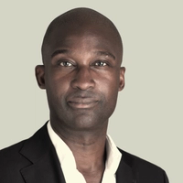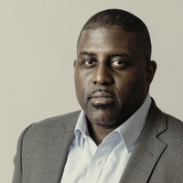 Freddy Mavunda/Sowetan/Gallo Images via Getty Images Freddy Mavunda/Sowetan/Gallo Images via Getty ImagesSim Tshabalala has been sole group CEO of Johannesburg-based Standard Bank, Africa’s largest bank by assets, since September 2017. The 161-year old bank spent most of the last two decades consolidating and selling off ventures outside Africa other than major centers including London, Dubai, and New York. What sub-region are you most hopeful for right now? We think that the East African bloc is the fastest growing. The main reason for that logic is the world is obviously going to slow down as a consequence of increasing interest rates in response to inflation. We think global growth will slow down. However, in East Africa they are oil importers, so they’re going to do reasonably well as oil prices come down. The really interesting thing about East Africa is that they’re becoming more and more integrated. They’re reducing the tariff barriers and lowering non-trade barriers. It’s getting easier to move people, goods, and ideas around the region. How do you think about the continent’s largest economy, Nigeria? Nigeria is always exciting, but it’s particularly exciting now because orthodox policies are being implemented. But if you just take a view of what’s happening, the policy formulation from a financial management perspective is now much more apt. So that will be good for the economy. How do forex controls in some countries affect your pan-African operations? The availability of foreign exchange policies that central banks and governments use to manage foreign exchange is of concern because it affects investment. You make an investment but are you going to get dividends, are you ever going to be able to get your capital out? As I’ve said, unorthodox policy results in orthodox outcomes. That’s why you have a devaluation in Nigeria. It was always going to happen and the same applies to other countries [who prop up their currencies]. The structural reforms you’ve seen in Nigeria are painful, and I think one has to have empathy and respect for people’s dignity, but they’re the right thing to do for that economy.  Reuters/Mike Hutchings//File Photo Reuters/Mike Hutchings//File PhotoWhat are market watchers missing about your home market, South Africa? If the electricity situation is resolved and the logistics situation resolved you could add two to three percentage points to the country’s GDP growth, based on our model. In the next short period South Africa will in all likelihood be free of loadshedding as a consequence of more distributed power generation by municipalities, retailers, and mining companies. The IPPs [independent power producers] didn’t just happen by accident and they’re starting to come on stream. We funded a good portion of the megawatts that are under construction, so we can see when they come on stream. Our belief is that there’s now sufficient policy implementation to suggest that loadshedding will soon end. What’s your predicted timeline? I would say things will start to improve from August in terms of the reduction in the levels of loadshedding. I think it will take a year to 18 months to completely get rid of it and generate sufficient megawatts as those IPP projects come on stream. So you’re optimistic about South Africa? I’m unequivocally optimistic. The data in my view supports optimism for South Africa. | 










